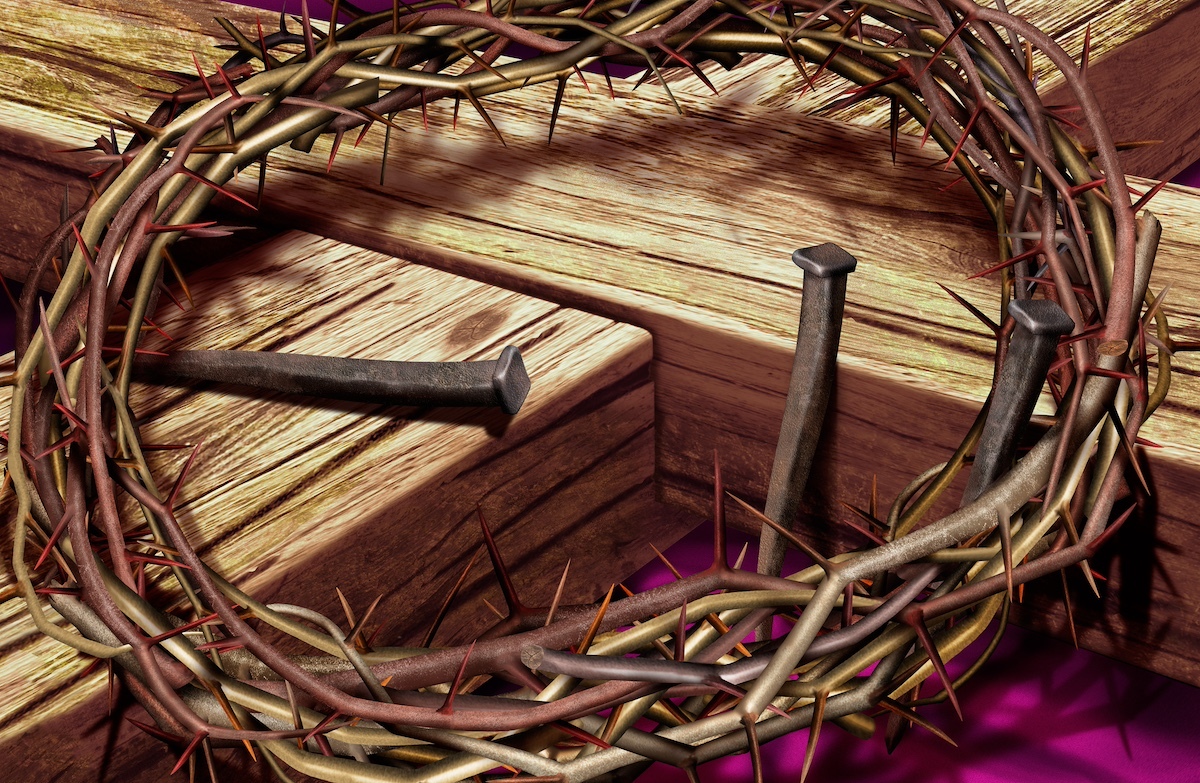Crowning the King: The Biblical Accounts of Jesus' Mockery

The mockery of Jesus, particularly during the events leading to his crucifixion, is a poignant and often heart-wrenching aspect of the biblical narrative. This article delves into the biblical accounts of Jesus' mockery, exploring the symbolic and theological dimensions of this profound episode in the Christian tradition.
The Crown of Thorns:
One of the most emblematic elements of Jesus' mockery is the placing of a crown of thorns on his head. According to the Gospels, Roman soldiers, in a cruel gesture of ridicule, fashioned a crown from thorns and pressed it onto Jesus' head, declaring him the "King of the Jews." This act of derision carried both physical and symbolic weight, highlighting the irony of a divine king being mocked with a crown that symbolized pain and suffering.
Purple Robe and Mock Regalia:
In addition to the crown of thorns, the soldiers draped Jesus in a purple robe, another facet of his mockery as a mock king. Purple was a color associated with royalty, and by clothing him in this regal hue, the soldiers continued their scornful jest, pretending to honor a king while subjecting him to humiliation.
Reed Scepter and False Homage:
To complete the mockery, the soldiers placed a reed in Jesus' hand, mimicking a royal scepter. They mockingly knelt before him, feigning homage while further ridiculing his true identity as the Son of God. This staged act of obeisance intensified the cruelty of the mockery, emphasizing the stark contrast between the divine reality and the soldiers' theatrical charade.
Theological Significance:
The mockery of Jesus carries profound theological significance in Christian doctrine. It is seen as the fulfillment of Old Testament prophecies, particularly those describing the suffering of the Messiah. This humiliating episode underscores the voluntary sacrifice Jesus made for humanity, enduring mockery and scorn to fulfill a redemptive purpose.
Jesus' Response and the Message of Forgiveness:
Throughout the mockery, Jesus responds with a remarkable display of compassion and forgiveness. His words, "Father, forgive them, for they know not what they do" (Luke 23:34), exemplify his divine nature and unwavering commitment to the mission of redemption. Even in the face of mockery, Jesus models forgiveness and grace.
Artistic Depictions and Cultural Impact:
The scenes of Jesus' mockery have been a recurring theme in Christian art, literature, and devotional practices. Artists have depicted this episode in various ways, capturing the emotional intensity and theological depth of the moment. The mockery of Jesus continues to resonate in Christian culture, serving as a powerful reminder of the sacrificial love and humility at the core of the Christian faith.
The biblical accounts of Jesus' mockery, with the crown of thorns, purple robe, and staged homage, reveal a profound narrative of suffering, irony, and divine purpose. Far from being a mere historical detail, this episode holds deep theological implications, symbolizing the sacrificial love of Jesus and his redemptive mission. The mockery, ultimately, becomes a poignant chapter in the overarching narrative of the Christian story, highlighting the transformative power of forgiveness and the triumph of divine love over human cruelty.
At Kid's Study Bible, we are dedicated to making the Bible come alive for young minds. Our platform offers a rich blend of interactive maps, captivating stories, and engaging resources tailored for children. With a focus on accessibility and understanding, we break down major Bible sections, explore geography, and provide a kid-friendly glossary. Join us on this exciting journey of discovery, where we strive to make learning about the Bible a joyful and enriching experience for every child.
Introduction and Background
- Genesis
- Exodus
- Leviticus
- Numbers
- Deuteronomy
- Joshua
- Judges
- Ruth
- 1 Samuel
- 2 Samuel
- 1 Kings
- 2 Kings
- 1 Chronicles
- 2 Chronicles
- Ezra
- Nehemiah
- Esther
- Job
- Psalms
- Proverbs
- Ecclesiastes
- Song of Solomon
- Isaiah
- Jeremiah
- Lamentations
- Ezekiel
- Daniel
- Hosea
- Joel
- Amos
- Obadiah
- Jonah
- Micah
- Nahum
- Habakkuk
- Zephaniah
- Haggai
- Zechariah
- Malachi
- Matthew
- Mark
- Luke
- John
- Acts
- Romans
- 1 Corinthians
- 2 Corinthians
- Galatians
- Ephesians
- Philippians
- Colossians
- 1 Thessalonians
- 2 Thessalonians
- 1 Timothy
- 2 Timothy
- Titus
- Philemon
- Hebrews
- James
- 1 Peter
- 2 Peter
- 1 John
- 2 John
- 3 John
- Jude
- Revelation